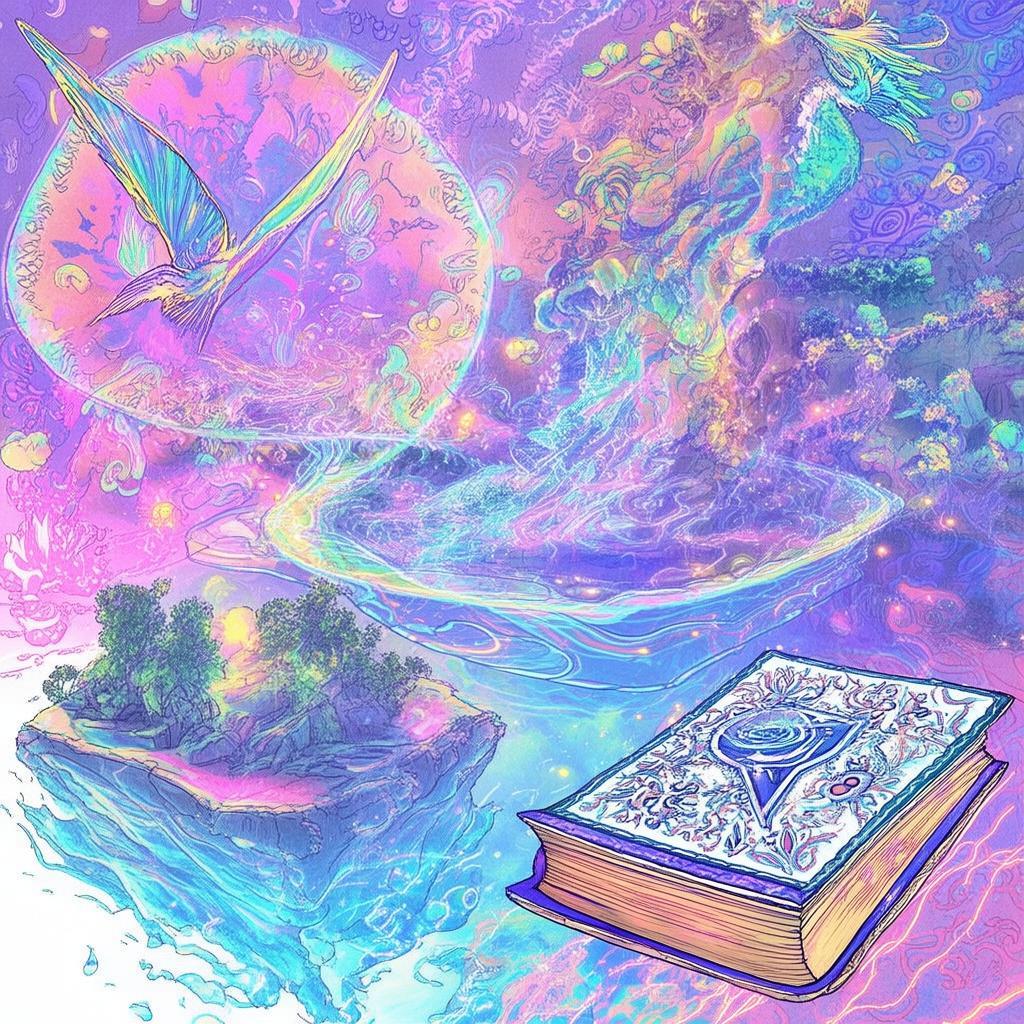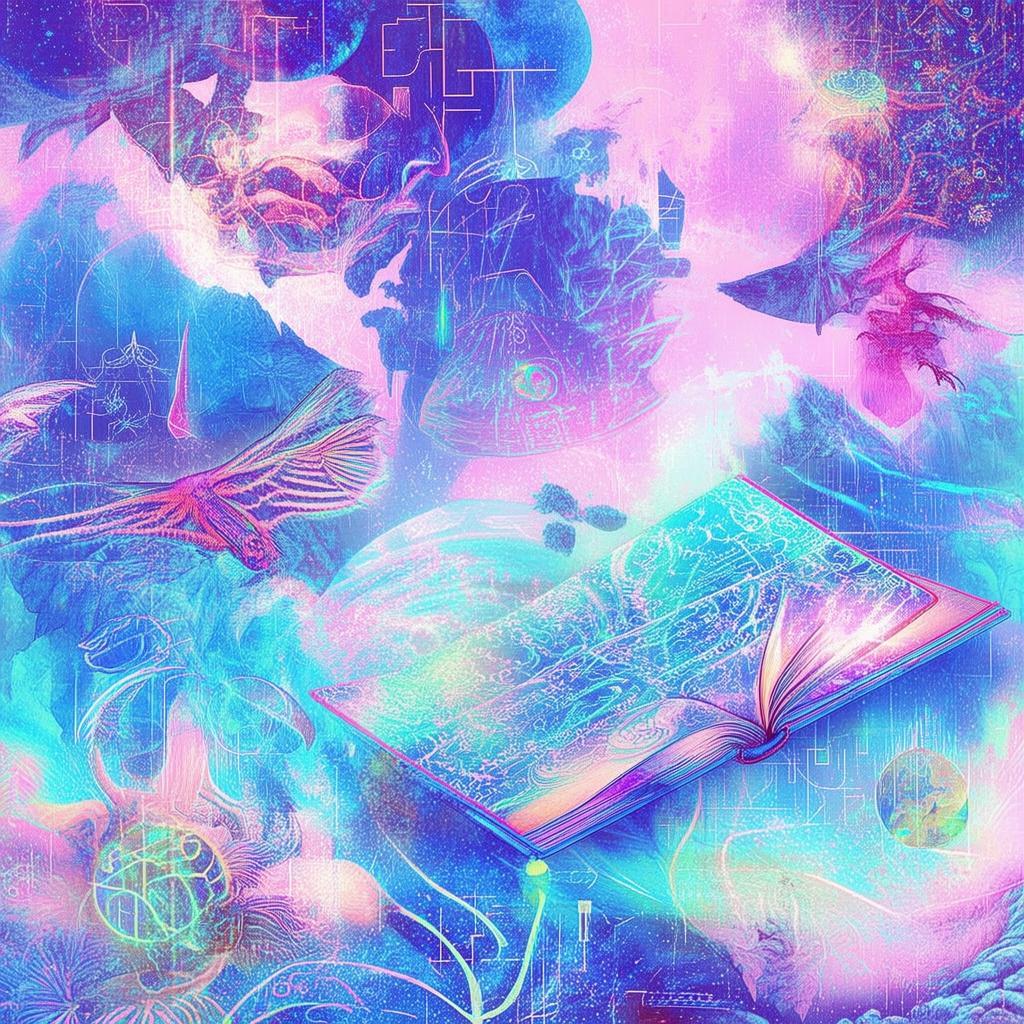Whispers of the Bard's Bane
The moon hung low in the sky, casting an eerie glow over the cobblestone streets of Stratford-upon-Avon. In the heart of the town, the Bard's Cottage stood, a beacon of creativity and tragedy. It was here, amidst the whispers of the past, that the tale of young Isabella and the enigmatic Thomas Marlowe would be told.
Isabella was the daughter of the famous playwright, John Shakespeare, and a woman of great beauty and intellect. She was also a singer, her voice as enchanting as the melodies she could weave into her songs. Thomas, on the other hand, was a playwright and a rival of Shakespeare's, whose work was often overshadowed by the Bard's own genius.
Their love was a tempest, fierce and unspoken, for in the strict confines of the Elizabethan era, such passions were forbidden. They met in secret, their hearts entwined by the forbidden magic of the Bard's Bane, a song that had the power to bind souls together, but at a terrible cost.
"Isabella," Thomas whispered, his voice barely above a murmur, "the Bard's Bane is a curse, a melody that binds us, but it also dooms us. We must break it, or we shall be lost to each other forever."
Isabella's eyes glistened with tears. "But how? Without the song, we are nothing. Our love is nothing."
Together, they sought a way to break the curse, to free themselves from the melody that threatened to consume them. They delved into the ancient texts, seeking the wisdom of the ages, but the answers they found were as elusive as the shadows that danced around them.

As days turned into weeks, the power of the Bard's Bane grew stronger, binding them ever more tightly. Isabella's voice grew weaker, her spirit fading with each note of the cursed song. Thomas, too, felt the weight of the curse, his own life force sapped away by the magic that bound them.
One fateful night, as the moon was at its fullest, they found themselves at the edge of the Avon River. The water flowed dark and deep, a mirror to the stars above. It was here that they made their final stand against the curse.
"Thomas," Isabella's voice was a mere whisper, "we must break the spell. I will sing the melody, and you must destroy the parchment that holds the song."
Thomas nodded, his eyes filled with pain and determination. He took the parchment from her hands, his fingers trembling as he approached the river's edge. The wind howled, carrying the haunting melody of the Bard's Bane, and Isabella began to sing.
The water rippled, the song swirling around them like a tempest. Thomas's eyes were fixed on the parchment, his heart pounding in his chest. With a final, desperate gesture, he hurled the parchment into the river, the melody shattering as it hit the water.
The wind ceased, the river's surface calm once more. Isabella's voice faltered, then stopped altogether. Thomas fell to his knees, his eyes wide with shock and sorrow. The curse had been broken, but at a great cost.
Isabella lay still, her spirit gone, the melody of the Bard's Bane forever silenced. Thomas knelt beside her, his tears mingling with the water of the river. They had broken the curse, but at the cost of their love.
Years passed, and the tale of Isabella and Thomas spread through the streets of Stratford-upon-Avon. The Bard's Cottage became a place of remembrance, a testament to the power of love and the tragic consequences of forbidden passions.
And so, the melody of the Bard's Bane continued to echo through the ages, a reminder of the unyielding force of love and the eternal dance between passion and fate.
✨ Original Statement ✨
All articles published on this website (including but not limited to text, images, videos, and other content) are original or authorized for reposting and are protected by relevant laws. Without the explicit written permission of this website, no individual or organization may copy, modify, repost, or use the content for commercial purposes.
If you need to quote or cooperate, please contact this site for authorization. We reserve the right to pursue legal responsibility for any unauthorized use.
Hereby declared.









